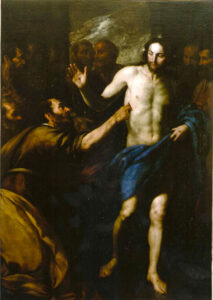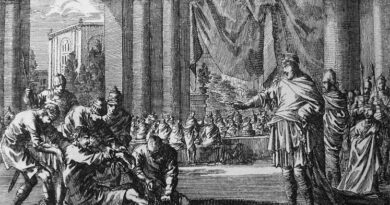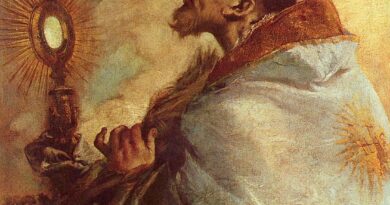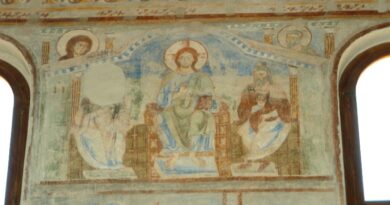Second Sunday of Easter (Domenica in Albis)

Massimo Palombella
Today’s day is also called “Domenica in Albis” (subtitled “deponendis”) because it is linked to the rite of Baptism (performed at the Easter Vigil). In this rite, the newly baptised receive and wear a white robe for the entire week of the Octave of Easter, until the following Sunday, which is therefore called the Sunday on which the white robes are laid aside.
The Orthodox Church calls this day ‘St Thomas Sunday’ because of the Gospel that is proclaimed today.
In the year 2000, Pope John Paul II proclaimed today’s day as the “Feast of Divine Mercy” (the devotion to Divine Mercy is linked to St Faustina Kowalska, a Polish mystic canonised during the Holy Year 2000, to whom John Paul II was very devoted, as evidenced by his second Encyclical “Dives in Misericordia” in 1980).
Today’s Gospel (Jn 20:19-31) recounts the story of the Apostle Thomas and his need to verify “empirically”: “Unless I see the holes that the nails made in his hands and can put my finger into the holes they made, and unless I can put my hand into his side, I refuse to believe”.
The Apostle Thomas can be praised as a “concrete”, practical, even, in some ways, “reliable” person. In fact, a certain culture implicitly educates us to a healthy concreteness that ensures the right and measured stability and maintenance of situations where things that are “certain and secure” are not questioned. Jesus, in his relationship with Thomas, challenges us to go “beyond”: “Happy are those who have not seen and yet believe”. And Jesus’ challenge is about the true quality of our life, in the sense that, without the ability to dream, to risk, to “trust”, to “try”, there is no true life but only a sort of “cage” where we illude ourselves to live. In fact, if we think about it, the most beautiful and great things in our lives necessarily imply instances that are anything but “certain and secure”: falling in love, getting married, having children, broadening one’s knowledge, experimenting, dreaming of projects beyond the schemes received from an education and beyond the expectations of those around us. Jesus questions our very notion of “peace”, often and implicitly understood as “stability”, “preservation”, where our best energies are spent to keep everything “still and stable” and, without realising it, we stop experimenting, trying to “venture out”. Jesus awaits us “beyond” our “certain and secure” things, beyond where we are certain to meet him, beyond our detailed planning. Jesus challenges us to be living, free people, people who, not without effort, make the Resurrection their genetic code.
The text of the first Alleluia of today’s celebration (in the Easter season the gradual is not contemplated, another Alleluia song is performed in its place, with the exception of the Easter octave) is taken from chapter 28 of Matthew’s Gospel (Mt 28:7) with the following text:
Alleluia. In die resurrectionis meae, dicit dominus, praecedam vos in Galilaeam.
(Alleluia. On the day of my resurrection, says the Lord, I will go before you into Galilee).
The attached music, in Gregorian Chant, is taken from the Gradual Triplex published in Solesmes in 1979. The music track can be found on YouTube where there is no indication of interpretation.
A blessed Sunday and heartfelt greetings.


